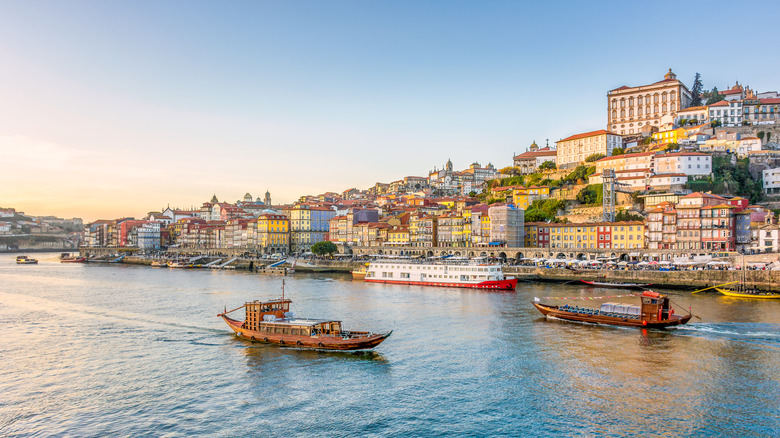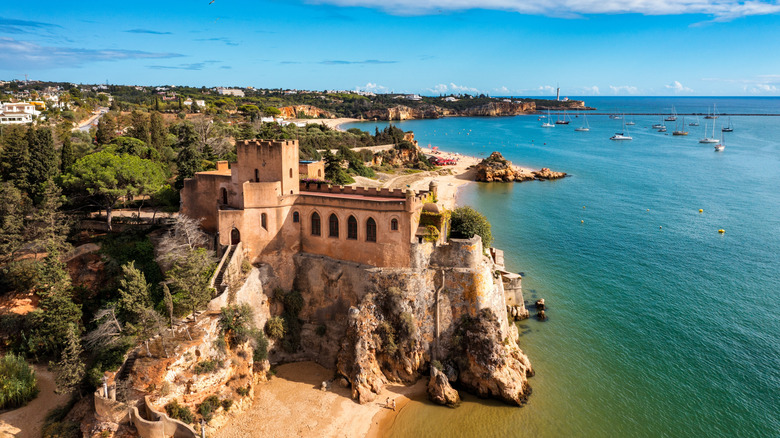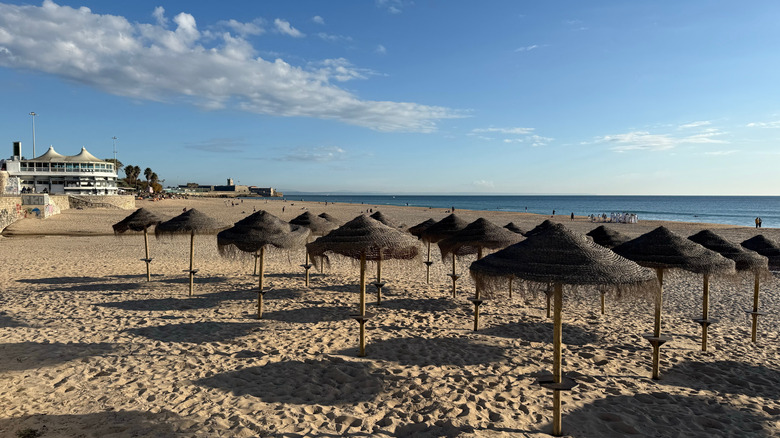Why Tourists May Not Want To Visit Portugal During Shoulder Season, Per Rick Steves
Portugal is an increasingly popular vacation destination in Europe. And with underrated foodie cities like Lisbon and Porto, incredible beaches, gorgeous landscapes, and rich history and culture, it's easy to see why. It has a great climate, a warm, friendly atmosphere, and is one of the cheapest places to explore in Europe. But while a few years ago Portugal was a hidden gem, these days it's firmly on the tourist trail, and can be a busy place to visit, especially during summer.
If you want to escape the crowds on a trip to the Algarve or avoid long lines for museums and attractions in Lisbon and Porto, the advice is often to travel during shoulder season, the months between high and low seasons, such as November and March. However, in Portugal, this isn't always the best idea, according to travel guru Rick Steves.
A spring vacation to Portugal is a great idea, with "the best combination of good weather, long days, and plenty of tourist and cultural activities", according to Steves. But winter is another story, with most destinations "dreary and pretty lifeless" during colder months. So, although months like May, June, September, and October can offer enjoyable experiences, particularly further south in Lisbon, the Alentejo, and the Algarve, crossover months like March, April, and November might be best avoided.
From crowded religious festivals to deserted tourist towns
Steves warns travelers that during the off-season in Portugal (which includes November and March), they can "expect shorter hours, more lunchtime breaks at sights, and fewer activities". There are, of course, exceptions — for example, Christmas is a big deal in most towns and cities across Portugal, and Steves mentions that the Entrudo, the Portuguese carnival season, "is especially raucous in Lisbon and a few towns in the Algarve".
It's also worth thinking about amenities, and what is actually going to be open and available when you visit. Bigger cities like Porto, Braga, and Lisbon have plenty going on year-round, but many spots in the more touristy areas, in particular in the Algarve, more or less shut down completely outside of high season. While you might get the beach to yourself, you will struggle to find places to eat or tourist attractions to visit that are set up to receive guests, and services across the board will be severely limited.
Portugal is still a very traditional and religious place, and even in the more favorable shoulder months like June, May, and October, certain places will be overwhelmed with tourists due to the holy festivals that take place. If you are hoping to see the city without crowds, then visiting Lisbon in early June is best avoided, thanks to the series of religious festivals happening then, culminating in St. Anthony's Day on June 13. Steves mentions Porto's celebration of St. John's Day on June 23-24 as another time when you might find unexpected crowds.
A country with a remarkably varied climate
Another thing to consider when deciding when to visit Portugal is where you plan to go. The country differs quite significantly from north to south when it comes to climate, scenery, and tourist attractions, so where you go can have a huge impact on the best time of the year to visit.
In the Algarve in the south, temperatures remain balmy and delightful year=round, meaning that visiting in the shoulder season can be a great opportunity to avoid crowds while still enjoying a little unseasonal warmth. It might not be sunbathing weather, but spring temperatures of 20-21° Celsius and fall heat of up to 26° are not to be sniffed at! At the other end of the country, things aren't as simple. Porto, for example, is often wet, cold, and windy in November and March, so while you might not see many other people, exploring the city won't be much fun either. Lisbon is warmer, particularly in the spring, but sees a lot of rain in fall, which can be a downer on a vacation.
The best times of the year to visit Portugal remain late spring/early summer and early fall, although you will want to book in advance if your visit coincides with a particular festival, event, or celebration. In May, June, and September, the weather is largely excellent, particularly in the south, and the tourist crowds have yet to arrive in force, as European kids are in school. But in reality, Portugal has plenty to offer travelers throughout the year, especially if you aren't too fussed about the weather, and the country can be a delight wherever and whenever you go.


